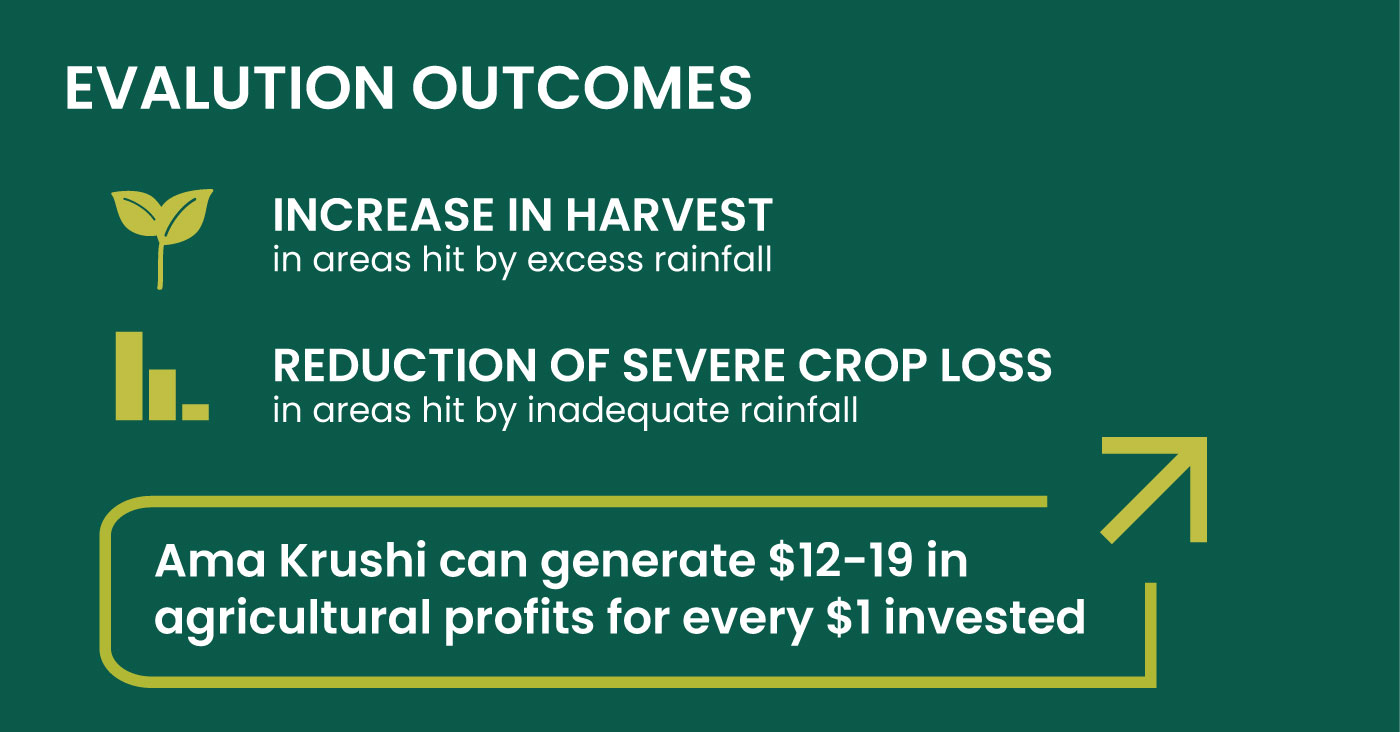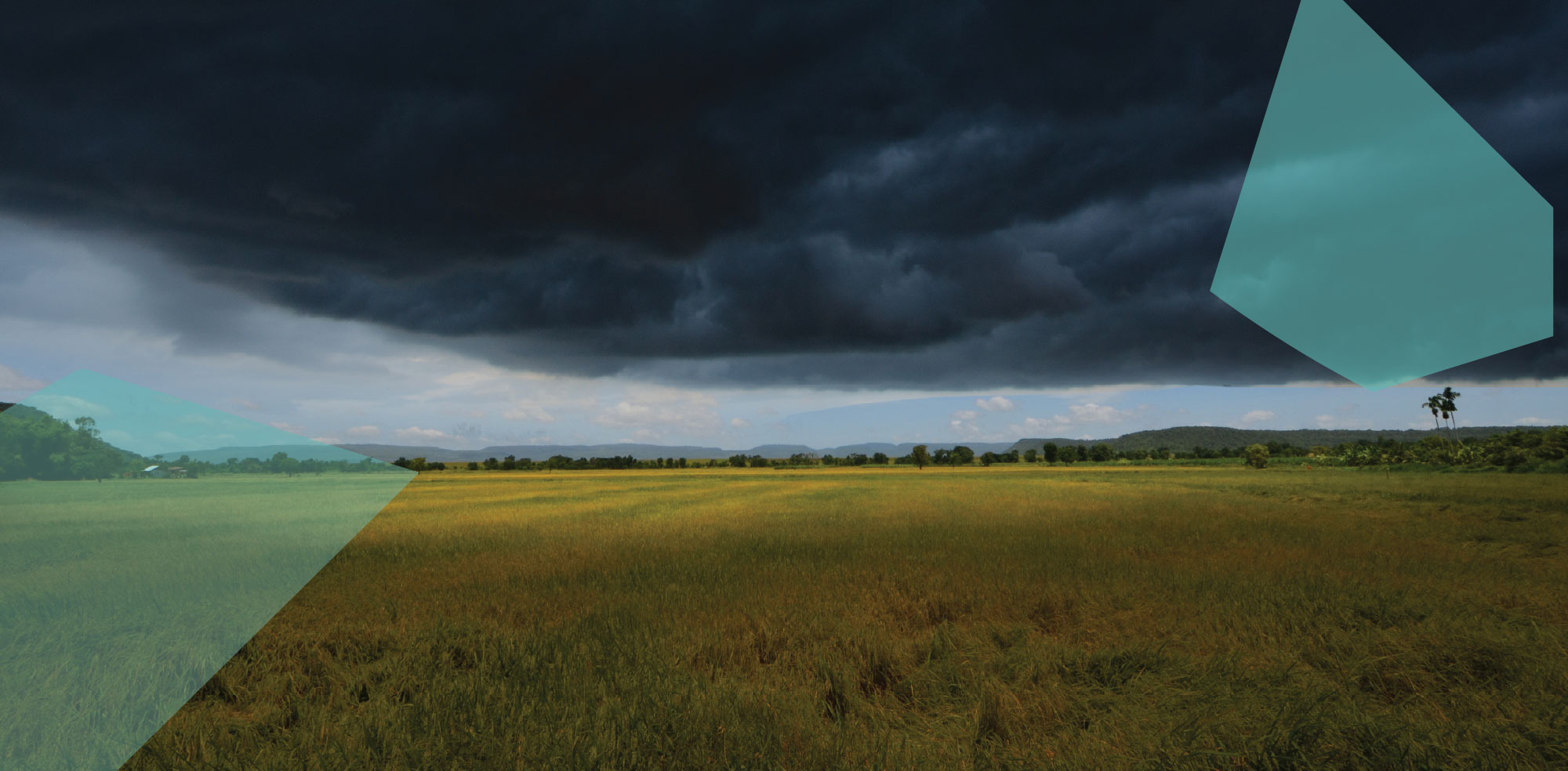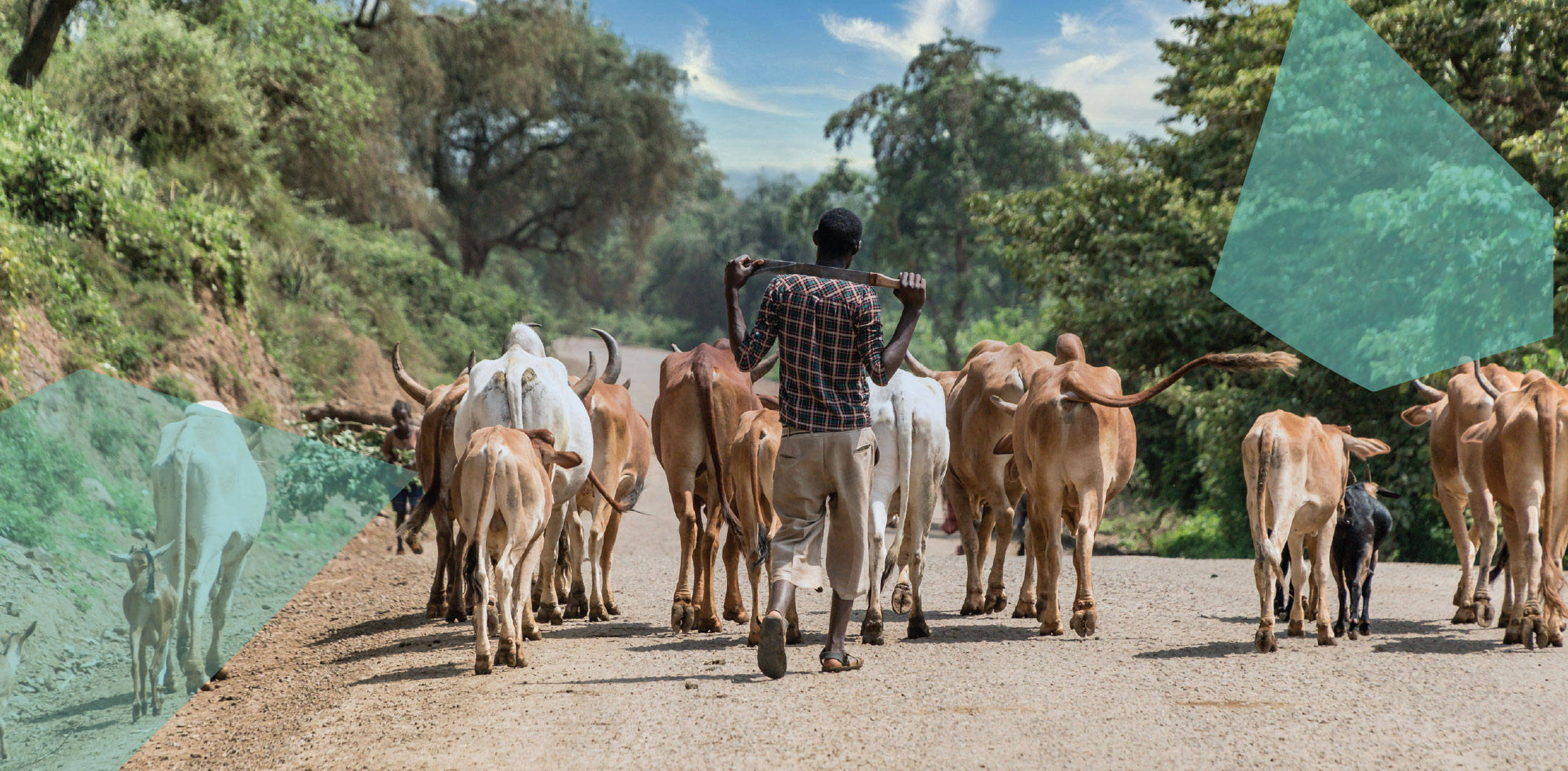Letter from the CEO

The core mission of PxD has always been to create impact at scale.
We have continued to identify and implement innovations that are evidence-based, impactful and scalable. We have prioritized measuring, and learning what works—sometimes at the cost of rapid growth. As a result, we’ve scaled successful initiatives and phased out those that weren’t effective. Importantly, we have made long-term investments in nurturing partnerships that align with this approach, while also building PxD organizational systems necessary for agile learning and sustainable growth.
In 2024, we saw many of these efforts yield big results.
Read Niriksha’s full letter
One key example is our flagship digital agricultural advisory program in Odisha, India. Evidence from this program shows that these services can help protect farmers from devastating crop losses, particularly during extreme weather events, with an estimated return of $12-19 in farmer profits for every $1 invested. This program was PxD’s first large-scale initiative developed in collaboration with a government partner. Today, it serves over 7 million farmers and is now entirely government-owned and financed.
Also in India, we provide seasonal weather forecasts to over 9 million farmers to help them manage production risks. Based on the positive feedback from farmers, we are now working with partners—including the Federal Ministry of Agriculture in India—to expand this effort, by adding new types of forecasts and additional dissemination channels, and by continuously improving how we communicate weather information to farmers.
This year, we introduced a new service model of embedding units within governments to provide strategic guidance on their digital agriculture portfolios. This dual role for PxD—acting as trusted advisors shaping policies and systems, and as implementers driving large-scale impact—enables us to amplify our insights and extend our impact to millions more farmers than we could directly reach ourselves. Our teams now support the Ministries of Agriculture in India and Ethiopia, and I’m incredibly proud of the progress we’ve made in such a short time.
Events in recent months have presented unprecedented challenges to the international development sector, and have created uncertainty across programs and organizations. These disruptions are impacting all of us and threatening services that are critical to the communities we serve.
In these challenging times, we are more determined than ever to remain focused on cost-effectiveness and impact. We have clear evidence that PxD’s services are highly cost-effective, enhance farmers’ resilience to climate shocks, and generate meaningful and sustainable impacts at the intersection of food security, poverty, and climate change.
In 2025, we shall continue to work with governments and other partners to deliver services to millions of farmers, and we shall focus on institutionalizing our new service model of advising governments. We are particularly excited about leveraging new advanced technologies—such as artificial intelligence—to unlock significantly higher benefits for farmers at much lower costs.
I remain deeply grateful for your continued support of PxD’s work.
PxD at a glance

18,549,456
Total users served in 2024

5,400,838
Women users served in 2024 1

$0.94
Average cost per user per year 2

14
Active programs in 2024

+85%
User growth in 2024

12:1–19:1
Benefit:cost ratio3
1. Estimated from a subset of programs that have data on user gender.
2. Since PxD’s inception, including graduated users, and including all costs.
3. Estimated from PxD’s flagship Ama Krushi program in Odisha, India.
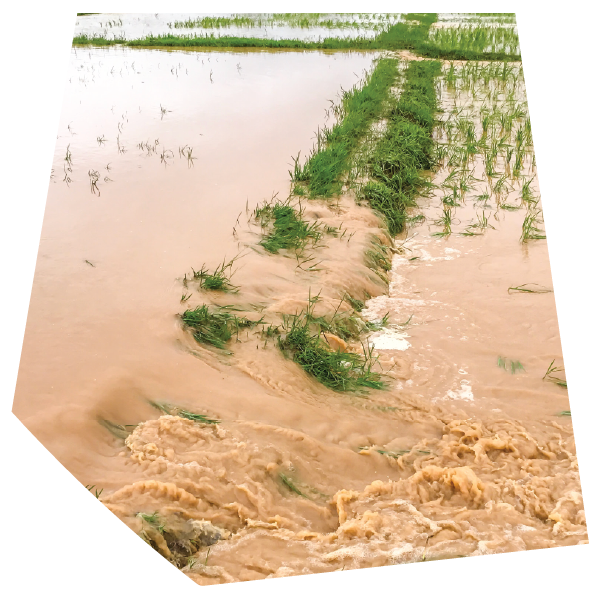
A new service delivery model to unlock growth: Strategic advice to governments about their digital agriculture portfolios

Innovation at PxD: Identifying the next generation of cost-effective services that can transform farmer impact at scale
Management, Governance and Legal
Read more
In April 2024, PxD was thrilled to welcome Niriksha Shetty as our new CEO, marking the beginning of an exciting new chapter for the organization. Under her leadership, supported by a dedicated Board, experienced senior team, and committed staff, PxD launched seven new programs in 2024. Niriksha’s efforts have nearly doubled PxD’s user reach to 18.5 million farmers, including over 5 million female farmers, and have led to the publication of impactful new evidence on PxD’s role in improving farmers’ livelihoods and enhancing their climate resilience.
PxD has appointed several new members to its advisory group, including Dr. Debisi Araba, a Visiting Research Fellow at the Centre for Environmental Policy at Imperial College London, and Michael Tsan, a Partner at Dalberg Advisors. Both bring valuable expertise to PxD’s work, and we have already benefited from their generous time and support.
PxD has been exploring the establishment of new legal entities to strengthen our operations as we expand our programs and research in countries we already operate in and begin working in new countries in the coming months and years.
Communications and Events
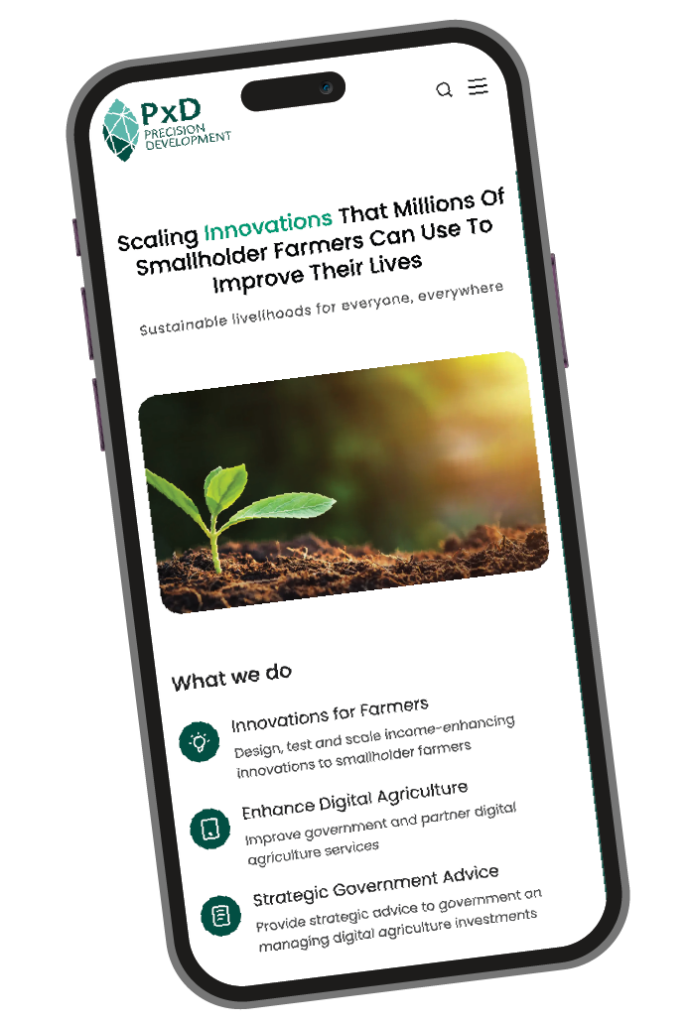
New website launch
In December 2024, we launched our redesigned website to better showcase our work and improve user experience. The new site offers streamlined access to our full library of publications, including working papers, reports, blog posts, and journal articles. Each of our initiatives now has a dedicated program page featuring clear overviews, impact metrics, and related knowledge outputs.
Blog posts
Throughout 2024, we continued to share insights, stories from the field, and updates on our ongoing initiatives on our blog. Over the year, we published 10 posts that reached over 10,000 readers worldwide.
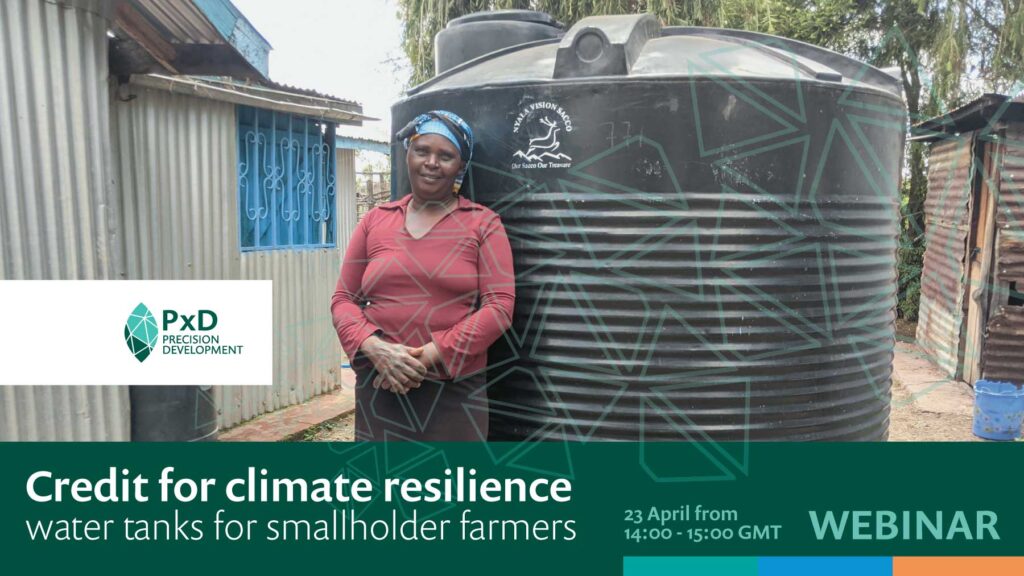
Webinar: Credit for climate resilience—water tanks for smallholder farmers
PxD hosted a webinar featuring Paul Nuthu, CEO Kwikas DT SACCO; Joshua W. Deutschmann, Evidence Synthesis and Research Lead, Development Innovation Lab, University of Chicago; and Abraham Salomon, Senior Program Manager at PxD. The discussion focused on the challenges posed by the water insecurity faced by smallholder farmers, the innovative impact of water tank loans on dairy milk sales and dairy resilience, and the positive effects on families’ livelihoods and education. The webinar attendees also discussed PxD’s ongoing efforts to scale this solution across Kenya and beyond.
Meeting of the Leadership Group and the India team
In May, PxD’s Leadership Group spent an inspiring week in India, deepening connections and exchanging diverse expertise and strategic insights. The group also collaborated with the India program and research team, sharing learnings and insights. This retreat provided a valuable opportunity to reflect on our progress and chart a clear path forward for PxD’s future.
Acorn Rabobank
AGRA
Apparel Impact Institute (Aii)
Asian Disaster Preparedness Center (ADPC)
Bezos Earth Fund
Development Innovation Lab (DIL) at the University of Chicago
Dioraphte Foundation
Eric and Wendy Schmidt Foundation for Strategic Innovation
Foreign, Commonwealth and Development Office (FCDO)
Gates Foundation (GF)
Horace W. Goldsmith Foundation
J-PAL Digital Agricultural Innovations & Services Initiative (DAISI)
J-PAL Innovation in Government Initiative (IGI)
J-PAL King Climate Action Initiative (K-CAI)
MoJo Philanthropic Fund
Private Enterprise Development in Low-Income Countries (PEDL)
Regen Organics
SNV (The Netherlands Development Association)
Swiss Re Foundation
Walmart Foundation
Weiss Asset Management (WAM) Foundation
Wellspring Philanthropic Fund
World Bank
WRLD Foundation- Agency Fund
Agricultural Transformation Institute (ATI), Ethiopia
Ambuja Foundation
Cereal Growers Association (CGA)
Climate Forecast Applications Network (CFAN)
Coffee Board of India
Development Innovation Lab (DIL) at the University of Chicago
Digital Green
Environmental Defence Fund (EDF)
India Meteorological Department (IMD)
Innovation Commission for Climate Change, Food Security, and Agriculture
Krushisharang (Fule Seeds)
Lessos Farmers Cooperative Society, Kenya
Ministry of Agriculture (MoA), Ethiopia
Ministry of Agriculture and Farmers’ Welfare (MoA&FW), India
Sirikwa Dairies and General Limited, Kenya
Skyline SACCO, Kenya
Technoserve
Vasantrao Naik State Agricultural Extension Management Training Institute (VANAMATI)
Wakulima SACCO, Kenya
West Bengal Accelerated Development of Minor Irrigation Project (WBADMIP)
Make an Impact Today




